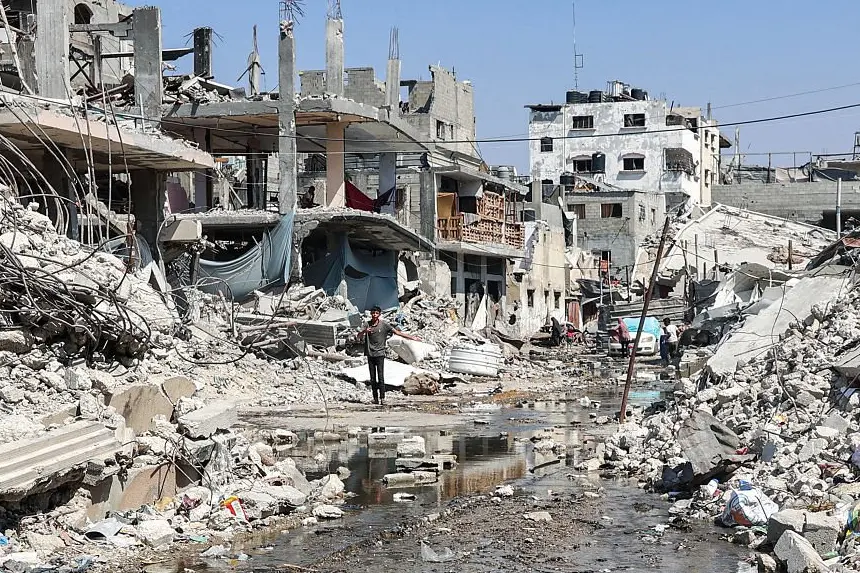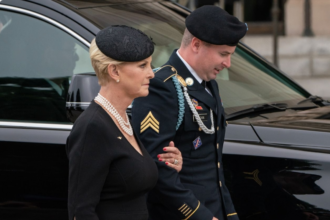Former President Donald Trump has revealed that Israel has accepted the terms of a 60-day Gaza ceasefire agreement as a way of stopping months of conflict. The deal, which was brokered by Egypt and Qatar, has given a hint at a resolution in a conflict that has led to a lot of civilian deaths. Trump pointed out that this could be the last chance given to Hamas to embrace peace, as things will not get any better. Israeli leaders have stated their willingness, but the reaction of Hamas is questionable. With the talks ongoing, the world is particularly waiting to see whether this Gaza ceasefire agreement will consequently result in the cessation of the bloodshed.
- What has Israel said about Trump’s announcement?
- Does Hamas have an appetite to strike a ceasefire?
- What are the roles of Egypt and Qatar in peace?
- What is the situational reality on the ground in Gaza?
- What has happened in the past in terms of a ceasefire?
- What is the quid pro quo of this ceasefire, concerning the larger region?
- What does the global community say?
- Final Thoughts
What has Israel said about Trump’s announcement?
The Israeli ambassador to the United Nations assured, Israel is “absolutely” willing to undergo a ceasefire. This readiness, however, is subject to cooperation by Hamas. Trump also said that Netanyahu is keen to put an end to the fights, and this may end with a formal disposition next week. The involvement of U.S officials such as the Secretary of State Marco Rubio and the Vice President JD Vance reveals the determination of the White House to execute the Gaza ceasefire agreement.
In the meantime, the Strategic Affairs Minister, Ron Dermerr, is in Washington leading a group on issues relating to ceasefire arrangements, logistics, and stability in the region. Such moves by diplomats indicate that the ceasefire is not only humanitarian but also a strategic need by the U.S. Here is the link to our article on Gaza Voice Silenced.
Does Hamas have an appetite to strike a ceasefire?
The question afterwards will be whether Hamas will accept the deal. Hamas reps have so far not publicly endorsed the proposal. Past negotiations had failed because of the differences on the issue of releasing the hostages and the Israeli forces’ withdrawal. A Hamas senior official confirmed to me that mediation is still taking place,,e but the negotiations are not going anywhere.
Israel does not relent on this belief that it will end this war only after toppling Hamas completely. On the other hand, Hamas is requiring an immediate cessation of hostilities and an absolute withdrawal of Israeli territories in Gaza, which in both political and military terms is a complicated practice. The Gaza ceasefire agreement will, therefore, have a tough time trying to please both parties.
What are the roles of Egypt and Qatar in peace?
Egypt and Qatar are still primary mediators. They have played a critical role in the development of the peace process, according to Trump. The two countries share a history of relationship with the Palestinian leadership and also have working relations with Israel and the US. Their contribution towards the provision of the final form of the Gaza ceasefire deal is vital.
Such nations have helped in the past to host ceasefire talks and the exchange of prisoners. They are the best channels of communication because of their neutrality and international linkages. They are now charged with the responsibility of convincing Hamas to accept the agreement before the region sinks deeper into more anarchy. Here is the link to our article on the Gaza Air Attack
What is the situational reality on the ground in Gaza?
The situation in Gaza is still unstable as negotiations continue to take place. Recently, Israeli air attacks killed at least 20 Palestinians at a cafe near the sea in Gaza City. The attacks were witnessed after Israel had issued an evacuation ruling in the north, which pointed to a possible increase in case a deal is not met.
There were also reports of civilian injuries by the Israeli military, who deny intentional involvement of the non-combatants, but the effects were felt in areas where aid was to be given out to the civilians. The aid organization has a U.S.-Israel-supported Gaza Humanitarian Foundation that has been faulted by more than 170 non-governmental organizations for misappropriating aid and working in unsafe environments.
The number of civilian casualties and humanitarian issues keeps on piling in, and the Gaza ceasefire deal seems to be urgent.
What has happened in the past in terms of a ceasefire?
The most recent notable feud started in January but broke down in March due to a new attack by Israeli airstrikes. The three stages of that deal were an immediate cessation of hostilities, the hosting and swap of hostages and prisoners, and the eventual relaxation of the Israeli forces. It collapsed at the initial phase, highlighting the instability of such accords.
Israeli authorities argued that their attacks were preemptive as they sought to stop imminent Hamas onslaughts. The failure of such a ceasefire led stakeholders to be wary and to avoid making the same mistakes again. As the Gaza ceasefire deal is on the table, lessons need to be learned by heeding historical failures.
What is the quid pro quo of this ceasefire, concerning the larger region?
Its consequences are beyond Gaza. Its success is also linked to regional stability, humanitarian relief, and global diplomatic credibility. The U.S and Trump, in his new administration, are interested in restoring its credentials as a major peace broker in the Middle East.
In addition, the events are impairing any international relations with countries allied with it, such as Egypt, Qatar, and European countries, with some suggesting an immediate ceasefire and a comprehensive political solution in the long term. Broken Gaza cease-fire accord serves to put additional pressure on these alliances, and it encourages the extremist forces in adjacent nations.
What does the global community say?
Though the U.S. is the driver in the ongoing talks, the rest of the world has asked the country to be open and involve others. Agencies such as the United Nations and the European Union have once again stressed the need for civilian protection and observance of international humanitarian law. Critics have blamed accountability and long-term solutions that seem to have been ignored by past ceasefires.
Other countries such as the UK and France have also reinforced the need for the deal to bring in commitments that the infrastructure in Gaza will be rebuilt, as well as giving continuous aid. International insistence might be the lifeline to make the Gaza truce agreement a long-standing reality.
Final Thoughts
The Gaza peace road is complicated, and the breakthrough is now possible than in the past months. The Gaza ceasefire deal is an opportunity to save lives, lives that are held captive in the hands of terrorists. But the key to its success is to be seen in a blending of mutual trust, diplomacy, and political boldness. What takes place in the next few days will define whether this move shall become the permanent solution or another unsuccessful effort in the chequered history of the region.








